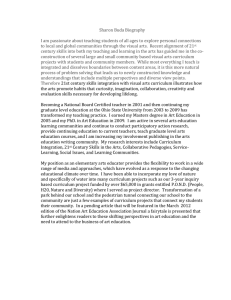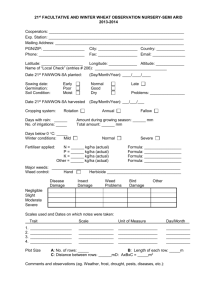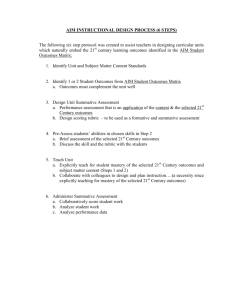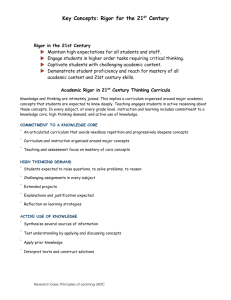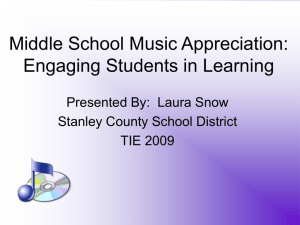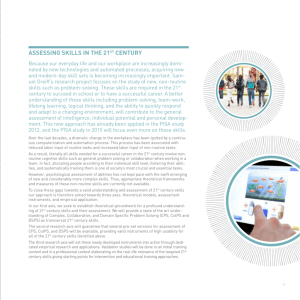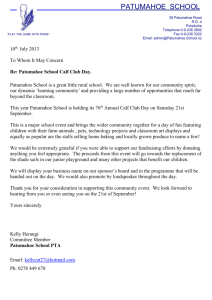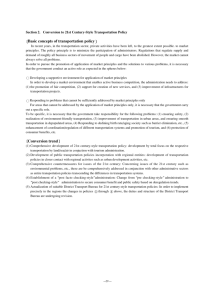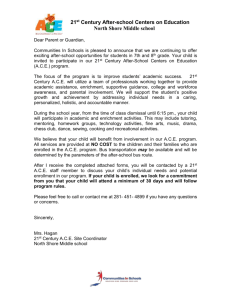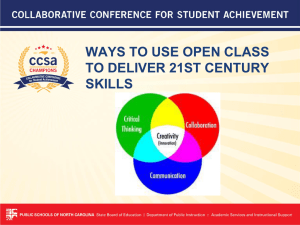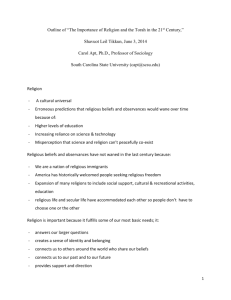Science Integration PowerPoint
advertisement
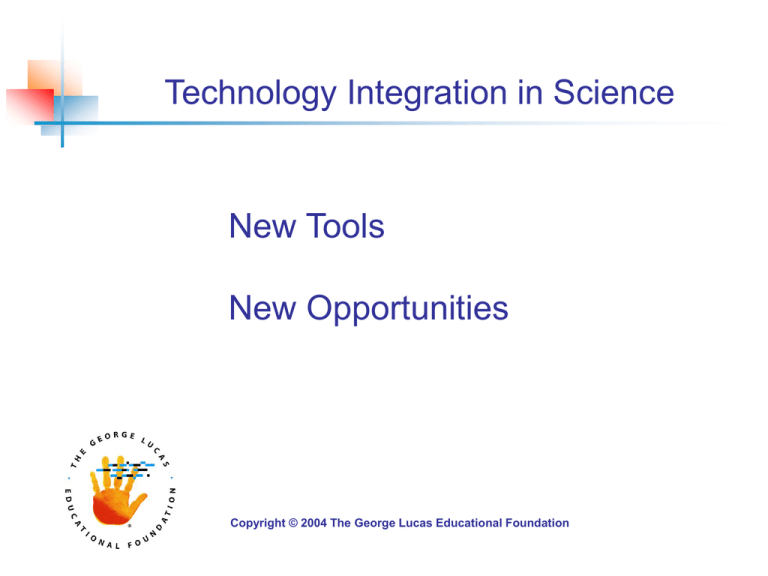
Technology Integration in Science New Tools New Opportunities Copyright © 2004 The George Lucas Educational Foundation Pressing Need According to the latest TIMSS study, American 8th-grade students score lower than their counterparts in Japan, Canada, England, and the Russian federation. --Comparative Indicators of Education in the United States and Other G-8 Countries: 2002 Why Integrate Science and Technology? Technology tools enhance science learning. Science and technology integration address 21st century skills. Science and technology integration are powerful partners in meeting standards. The Future is Now “Beyond the world of global finance, mathematics and science will also supply the core forms of knowledge that the next generation of innovators, producers, and workers in every country will need if they are to solve the unforeseen problems and dream the dream that will define America’s future.” --Glenn Commission 21st Century Skills “The definition of student achievement must be broadened to include the 21st century skills that will be required for students to thrive in the future.” --CEO Forum on Education and Technology (2001) 21st Century Skills Personal and social responsibility Planning, critical thinking, reasoning, and creativity Strong communication skills Cross-cultural understanding Visualization and decision-making Knowing how and when to use technology Generation YES (Youth and Educators Succeeding “We see K-12 students as change agents, infusing technology to improve learning.” --GenYES Teaching and Learning Teachers need ongoing, comprehensive professional development. Teachers need opportunities for sharing best practices with peers worldwide. Teachers need up-to-date tools and time to understand how they fit into the curriculum. What is the Question? “Questioning may be the most powerful technology we have ever invented and can give to our students.” --Jamie McKenzie, Ed.D. NSTA “In the vision of science education portrayed by the Standards, effective teachers of science create an environment in which they and students work together as active learners.” --NSTA standards What is Science and Technology Integration? Day-to-day instruction Student competitions Online challenges and collaborations Activities Watch “Newsome Park” Watch “West Hawaii Explorations Academy” Read More Fun Than a Barrel of … Worms?! Read Classrooms Without Boundaries In these segments, how was science integrated with technology? What were some other ways science and technology could have been integrated? Activities What evidence did you see or read that standards were being addressed and met? How would you adapt what you saw or read to your own classroom? What ways do you already integrate science and technology? What other ways would you like to integrate science and technology? What will it take to do so?
